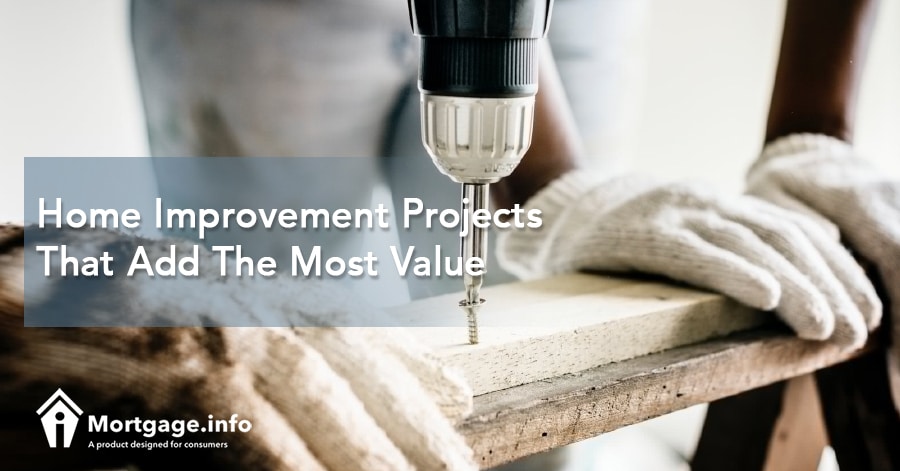
Did you know that not all home improvements have a good return on investment? It sounds crazy, but you can put thousands of dollars into a repair and see very little of that amount back in the home’s improved value. In other words, you should do your research before you do any renovations to see how they will affect your home’s value. If you know you’ll move in the near future, you want to make renovations that will give you money back rather than give you nothing.
Get Matched with a Lender, Click Here.
Kitchen Remodel
You don’t have to completely renovate your kitchen in order to see a return on your investment. In fact, minor renovations are better than major changes in the kitchen. Updating your cabinet’s face (not the whole cabinet), replacing countertops, and adding new appliances will return an average 80% return on your investment. Not only will you see money back from the investment, but you’ll have a beautifully updated kitchen to spend your time.
Paint the Interior
There’s nothing better than a fresh coat of paint. If you take the time (and money) to paint the interior of your home, you may sell it for a few thousand more than if you didn’t. It’s not that the paint costs that much, but it’s the atmosphere and the feeling it gives a home.
If your home has old, peeling paint or pain that’s faded, the home takes on a dreary look. It makes everything else in the house look just as dreary too. If the house has a fresh coat of paint, though, everything perks up, even old appliances and decorations look better because of that fresh coat of paint. That happier feeling invokes a feeling of more value in a home, which is reflected in your home’s value.
Fix the Landscaping
The curb appeal of your home plays a vital role in its value. The exterior of your home is the first thing visitors see. If it’s cluttered, messy, or overgrown, it can bring the value of your home down. It can also make people think that the interior of your home is going to look the same way – messy and cluttered.
You can spruce up the landscaping on all sides of your home for a small investment with a big return. Whether you just trim the bushes and the grass and make your home look pretty or you add new trees, shrubs, and flowers, you will add value to your home with this simple step.
Click to See the Latest Mortgage Rates.
Get New Appliances (Energy-Efficient Appliances)
If your home isn’t very energy efficient, it can take away from a home’s value. Buyers want a home that won’t cost them an arm and a leg to heat up or cool down. They also want a home that’s self-sufficient. If they have to replace the furnace and AC unit often because of the wear and tear it takes from the energy inefficiency, it can get costly.
Replacing your utilities and appliances with energy-efficient options is a great way to increase the value of your home. Buyers are sometimes more willing to buy an energy efficient home than one that has the features they desire. You can always change décor or add features to a home, but making energy efficient changes, such as new windows, doors, or insulation is costly and labor intensive, something buyers want done for them before they move into the home.
Change the Flooring
Just as the walls help increase a home’s value, so does the flooring. If the carpeting has seen better days or your linoleum floor needs a refresher, consider replacing the floors. You don’t have to go all out and get wood floors (although it would be nice), just new flooring that is pretty, easy to maintain, and installed correctly can greatly increase the value of your home.
These simple changes aren’t major, but they can have a major impact on your home’s value. If you have renovations you want to make that won’t’ have a great impact on the home’s value, consider pairing them with one of the above renovations so that you do see a return on your investment.
Home improvement projects aren’t a one-size-fits-all approach when it comes to adding value. Knowing which improvements will help your home’s value can help you make the most out of your investment. Talking with a local real estate agent or appraiser can also help you see which changes are right for your home.
